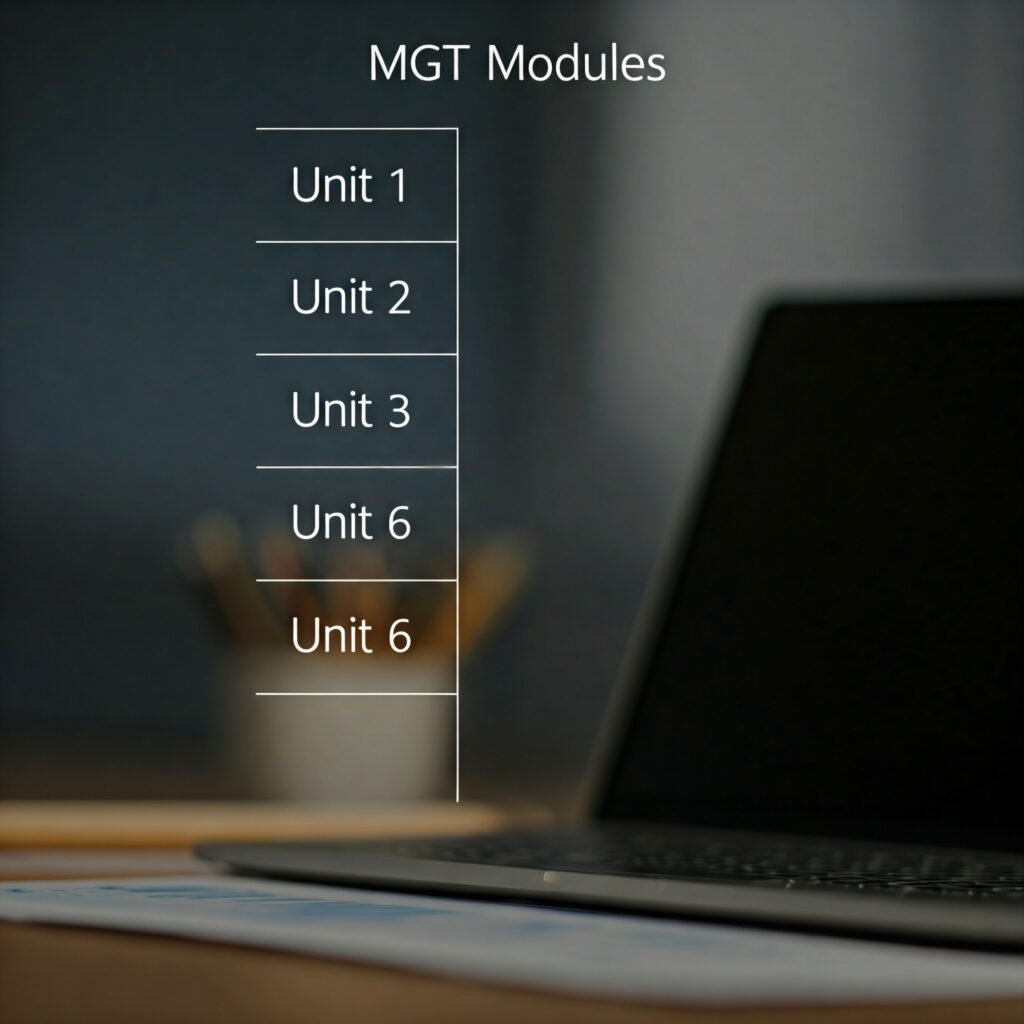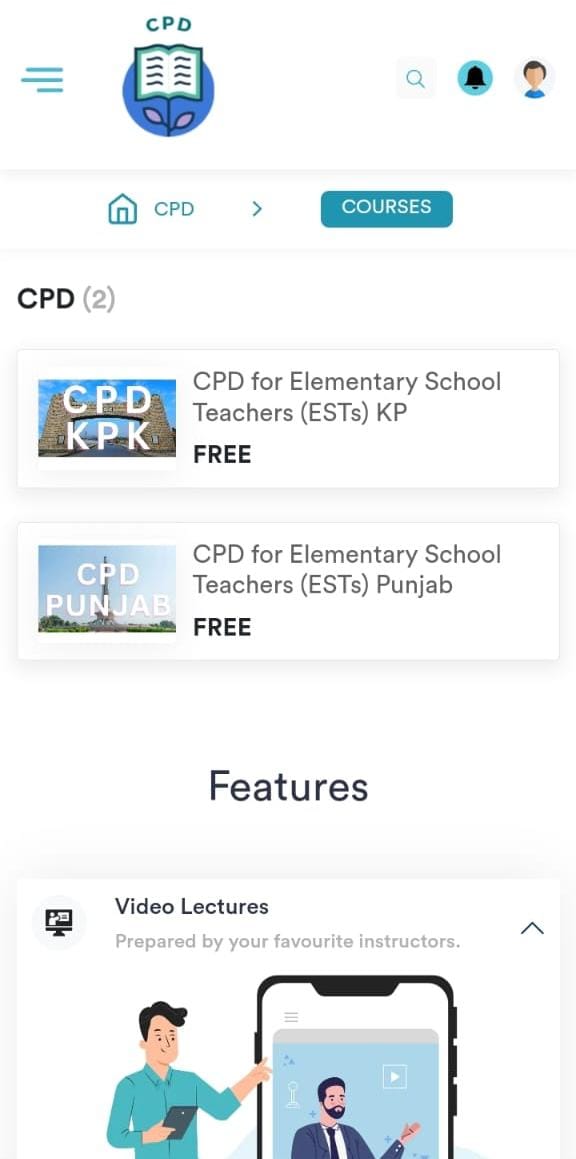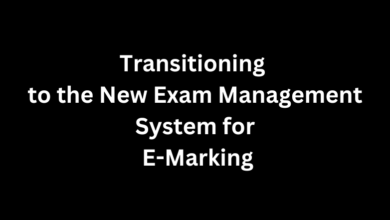MGT Modules Unit 1 to 6
Contents
MGT Modules Unit 1 to 6

1. Introduction
This article provides a concise overview of key concepts typically covered in the first six units of a foundational Management (MGT) course. These units lay the groundwork for understanding fundamental management principles and their application in various organizational settings.
2. Unit-wise Overview
- Unit 1: Introduction to Management
- Key Concepts:
- Definition of management and its functions (planning, organizing, leading, controlling)
- Evolution of management thought (classical, behavioral, quantitative, systems, contingency)
- Importance of management in today’s dynamic business environment
- Learning Objectives: Understand the core concepts of management, its historical development, and its significance in contemporary organizations.
- Key Concepts:
- Unit 2: Planning
- Key Concepts:
- Types of plans (strategic, tactical, operational)
- Planning process (defining objectives, analyzing the situation, developing alternatives, selecting the best plan, implementing and controlling the plan)1
- Techniques for effective planning (SWOT analysis, forecasting, scenario planning)
- Learning Objectives: Develop an understanding of the planning process, its importance in achieving organizational goals, and the various tools and techniques used in planning.
- Key Concepts:
- Unit 3: Organizing
- Key Concepts:
- Organizational structures (functional, divisional, matrix, team-based)
- Departmentalization (functional, product, customer, geographic)
- Span of control and chain of command
- Delegation of authority and responsibility
- Learning Objectives: Learn about different organizational structures and how to design effective organizational arrangements to achieve organizational goals.
- Key Concepts:
- Unit 4: Leading
- Key Concepts:
- Leadership styles (autocratic, democratic, laissez-faire, transformational)
- Motivation theories (Maslow’s hierarchy of needs, Herzberg’s two-factor theory, expectancy theory)
- Communication process and barriers to effective communication
- Teams and teamwork
- Learning Objectives: Understand the importance of effective leadership, different leadership styles, and how to motivate and lead individuals and teams effectively.
- Key Concepts:
- Unit 5: Controlling
- Key Concepts:
- Control process (setting standards, measuring performance, comparing actual performance with standards, taking corrective action)2
- Types of control (feedforward, concurrent, feedback)
- Importance of control for organizational performance and risk management
- Learning Objectives: Learn about the control process, its importance in ensuring organizational effectiveness, and the different types of control systems used in organizations.
- Key Concepts:
- Unit 6: Decision Making
- Key Concepts:
- Types of decisions (programmed, non-programmed)
- Decision-making models (rational, bounded rationality, intuitive)
- Decision-making techniques (groupthink, brainstorming, delphi method)
- Learning Objectives: Understand the decision-making process, different decision-making models, and how to make effective decisions in various organizational contexts.
- Key Concepts:
3. Key Takeaways
- Management is a dynamic and multi-faceted process that involves planning, organizing, leading, and controlling organizational resources to achieve specific goals.3
- Effective management is crucial for the success of any organization, regardless of its size or industry.
- Understanding the different management theories and concepts provides a valuable framework for analyzing and addressing organizational challenges.
4. FAQs
- Q: What are the four functions of management?
- A: Planning, organizing, leading, and controlling.
- Q: What is the difference between leadership and management?
- A: Leadership focuses on inspiring and motivating people towards a common goal, while management focuses on planning, organizing, and controlling resources to achieve organizational objectives.
- Q: What are the key elements of the control process?
- A: Setting standards, measuring performance, comparing actual performance with standards, and taking corrective action.
- Q: What are some common barriers to effective communication?
- A: Noise, filtering, language barriers, cultural differences, and emotional barriers.
5. Conclusion
The first six units of a typical MGT course provide a solid foundation for understanding the core concepts and principles of management. By studying these units, students gain valuable insights into the challenges and opportunities facing managers in today’s complex and dynamic business environment.
Disclaimer: This article provides a general overview of MGT modules and may not cover all topics or specific course content. Please refer to your course syllabus and learning materials for detailed information.








